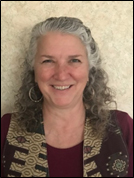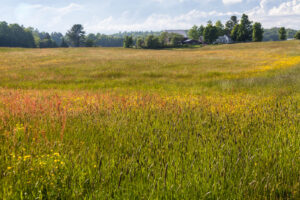Moving from polarization to partnership
At the 2022 Maine Sustainability & Water Conference, keynote speaker Judy East will share her experience working across divides.
March 2022
How can we move beyond the notion that there are “others” among “us” and “find a common place that we can all call home”? This is one of the questions that Judy East will explore in her keynote address at the 2022 Maine Sustainability & Water Conference on Thursday, March 31.

East is the director of the Bureau of Resource Information and Land Use Planning in the Maine Department of Agriculture, Conservation and Forestry and was previously director of the Maine Land Use Planning Commission. She serves on the Maine Climate Council and as co-chair of the council’s working group on Community Resilience Planning, Emergency Management and Public Health.
The Toronto native holds a bachelor’s degree in biology and economics and a master’s in planning from the University of British Columbia’s School of Community and Regional Planning.
The path to planning
At the beginning of her career, East realized that “if you want to change anything—not just study the science but make things better—you have to include economics,” she says, “as well as policy, group dynamics and communication.” This realization led her to pursue a master’s degree in planning, which brings together all of these facets and more. “Planning is kind of the ultimate integrating field.”
Planning is also pragmatic and action-oriented, she says, focused on “helping communities make decisions, helping them get to the place where they can say, ‘okay, we’ve considered what we need to consider,’ and then find ways to put those things into action.”

East has lived in rural communities for most of her life, and has 34 years of experience in land use planning in “deeply rural” places in Maine, Vermont and New York, balancing land and resource conservation with economic development. This experience includes 17 years with the Washington County Council of Governments in eastern Maine. Her work has garnered recognition from the Maine Association of Planners, the Northern New England Chapter of the American Planning Association, and other organizations. She has also served on statewide and regional boards and committees, including the Maine Sea Grant Policy Advisory Committee and GrowSmart Maine.
Listening rather than labeling
In her decades of experience she’s seen firsthand that people often have a tendency to label rather than listen to each other—such as the “from here” versus “from away” distinction that’s familiar to most of us in Maine. She has also observed how this tendency can accentuate conflict and hinder our ability to live and work together, undermining the shared love for and commitment to our communities that crosses these divides.
In the keynote she will share stories from her experience as well as strategies and tools that can help us find common ground in our civic life, with the aim of reinforcing a shift from division to mutual benefit. East recognizes that Maine has a long history of public figures, including Margaret Chase Smith, Olympia Snowe, William Cohen and George Mitchell, who have modeled the important work of bridging divides. She will also talk about people in Maine today whose research and practice continue and expand this work.
She is quick to point out that learning to work together more effectively is not about stepping back from or avoiding conflict. But rather how we can learn to meet each other and keep moving forward, even when the going is tough.
Conference connections
One of the things that East values most about the conference is the active participation of young people, who are the next generation of scientists, policy experts and community leaders, she notes. “Seeing and interacting with them keeps me inspired and engaged,” she adds. The conference offers high school, undergraduate and graduate students the opportunity to present their research to professionals in their fields of interest as well as to peers, teachers and advisors.
Mitchell Center Director David Hart approached East about delivering the conference keynote after working with her and learning about her background and experience in Maine and beyond.
“This challenge—how we can work towards shared goals despite our differences—continues to come up in many conference sessions,” says Hart. For example, this year’s conference includes sessions on such thorny issues as PFAS risks, climate threats, and solid waste management. “The lessons Judy has learned throughout her career can help all of us as we strive to build collaborations that contribute to a brighter future.”
A recording of Judy’s keynote address is now available along with PowerPoint slides from the talk.
